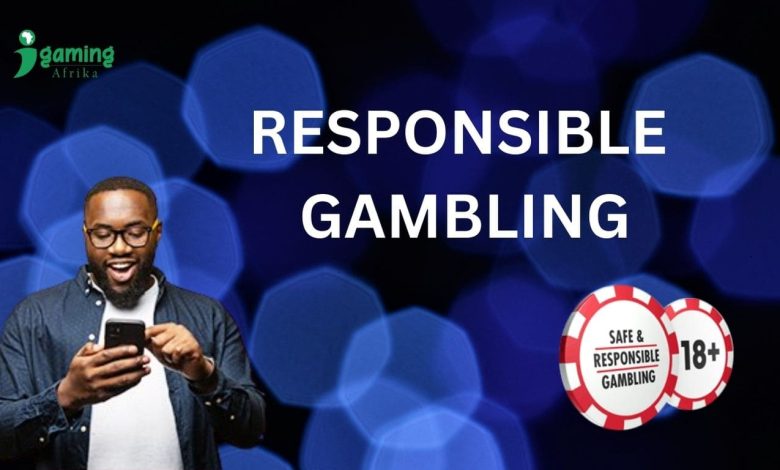Exclusive: Responsible Gaming – A Look at the Current Responsible Gambling Standards and Measures in Africa

Gaming across African countries is still facing challenges as the market is yet to catch up with other stable markets, notably the European market. Different stakeholders in the gaming industry have reiterated that unified responsible gaming standards and measures across Africa would propel the industry forward and ensure responsible gambling.
During a webinar conducted by iGaming AFRIKA, aimed at helping the continent to know how far it has come with responsible gaming standards and measures, the panelists agreed that the sustainability of the gaming industry is linked to responsible gambling.
Speaking on responsible gambling in Kenya, Mr. Weldon Koros, a board member of The Responsible Gaming Federation of Kenya noted that even though the act used to regulate the gaming industry has been in existence for a long period, there is currently an act in parliament that seeks to replace the outdated one.
“Unlike in the UK and other advanced jurisdictions, operators don’t necessarily contribute to support responsible gambling measures, but under the new act, that will come into place,” said Mr. Koros.
He further added that currently in Kenya, there is no responsible gaming helpline unlike in other countries. Operators voluntarily support responsible gaming organisations to create awareness at the community level. “In Kenya at the moment, operators don’t need to support responsible gaming with the old act,” he added.
Mr. Koros is hopeful that when the new act is passed on the floor of the national assembly, responsible gaming will be supported.
He went on to refer to the UK where no law forces the operators to contribute towards eradicating gaming addiction, among other problems but operators do so voluntarily. However, in Africa, with emphasis on the Kenyan market, Weldon notes that more providers will insist that there should be a provision in the law requiring them to support responsible gaming initiatives before they can do so.
The scenarios in Kenya are not different from those in Nigeria according to Mr. Fisayo Oke, the CEO Gamble Alert, Nigeria. who pointed out that, “problem gambling in Nigeria is a new concept for many gaming operators, more so for regulators”.
Mr. Oke further clarified that when it comes to matters of responsible gambling in Nigeria, it is voluntary when it comes to supporting initiatives around it. However, there are policies at the state level to ensure people provide the right plays and ensure advertisements are not done in a way gamers can fall into compulsive gambling.
“Most providers have come up with initiatives to ensure there is responsible gambling in Nigeria where different states regulate gambling, but there is no one single law that regulates the industry,” the Gamble Alert CEO added.
Mr. Fisayo is, however, optimistic about the future of responsible gaming in Nigeria as the latest amendment submitted before the national assembly was two years ago, the new bill that introduces a whole lot of concepts into the regulation.
“There is a need for a unified law concerning responsible gaming and anything around the gaming industry for the industry to move forward and ensure players are protected,” he added.
Mr. Robin Bennett, Head of Department: Regulatory Compliance, Western Cape Gambling and Racing Board (WCGRB) said that in South Africa in 1997 when gambling legislation was introduced by the provinces, everyone was aware of the gambling consequences. However, in the development and evolution of gaming from 2000-2024, responsible gaming measures have not kept pace with such development.
“The authorities were aware that legalising gambling could lead to problem gambling, and so many measures were put in place to avert problem gambling. It is quite easy to consider new games, new contingencies, and betting markets but not consider responsible gambling measures needed to be introduced at the same time with these new developments.” Mr. Bennett added.
Read Also: The Looming Death of the Betting Industry in Kenya: Reject the Finance Bill 2024
He further expressed his desire on the need for the development of a uniform database for players in South Africa as with the current setup, it is difficult to implement responsible gaming measures such as self-exclusion as players excluded in one province may open accounts and continue playing in other provinces within the country.
Ms. Tumelo Mokoena, Digital Communication and Advocacy Specialist, at The South African Responsible Gambling Foundation, who was also the moderator of the webinar brought in the point that each license holder has to contribute 0.1% of the gross gaming revenue and the money goes to The South African Responsible Gambling Foundation.
Her query was on the fact that there is a lack of a unified approach across all the provincial licensing authorities (PLAs) in South Africa. She felt that the laws in South Africa have remained unchanged for two decades while a lot has changed in the gaming industry. “There is a need for responsible gaming measures and standards to be put in place to match up with the standards of the digital age, in all the African countries,” she added.
Mr. Bennet further added to this observation noting that the number of license holders in the country has since changed and the need for responsible gambling measures has grown astronomically as betting is now easily accessible.
Considering the gambling face has changed from being for the elderly to the younger tech-savvy generation, the panellists thought of how they could integrate technology to ensure they enhance responsible gaming measures.
In response, Mr. Koros stated that Kenya needed to adopt some technologies such as those used in developed countries like the United Kingdom to tackle problem gambling.
“The use of helplines alongside unified safe exclusion, blocking software, and other technologies would boost responsible gambling in the African market,” he remarked. “The use of a layered approach has been proven to be more effective in advanced jurisdiction”. He added.
Mr. Koros further noted that some of those tools are not available in Africa and when they are available, challenges like technological differences for example the type of devices in Kenya and the UK differ in technological advancement, “We have a long way to go here in Kenya but with the new Act, we will soon catch up.” he added.
Mr. Koros maintained that looking back at the UK, Africa ought to introduce their technologies but modify them to fit the African market.
Mr. Oke echoed, Mr Koros’ sentiments, stating safe exclusion would encourage responsible gambling more in that if one can identify by themselves, then it is the first solution to problem gambling. He also added that when a gambler is excluded from one platform, this should be reflected in all other platforms.
Mr. Oke also felt the need to monitor the system or system algorithm to know when a gamer spends more time than usual on one site so that they can be advised to take a break from gambling.
Mr. Bennet further noted that if information is to be collected by a third party, that would be challenging. The operators ought to be more careful in tracking player behaviour without breaching any act that protects the personal information of the player.
Discussing matters of ensuring advertisements are done to promote responsible gambling, Mr. Oke said the policy available from the National Lottery Commission in Nigeria is that advertisements should be made in modest ways.
“Messages in advertisements should not in any way harm the listener. The message must be responsible, let people know that gambling can become addictive,” he added.
Mr. Oke proposed the need for a unified legal framework around responsible gambling and acknowledged the importance of unified research work in Africa when it comes to responsible gambling, “if there is a unified approach across African countries, a lot more can be done to ensure gaming companies that are already licensed can use your regulation to tie to responsible gambling,’ he added.
All panellists agreed on a unified approach to tackle responsible gaming, regulators be mindful not to overregulate, Investors urged to visit Africa to understand and address problems in Africa, License operators should embrace whatever regulation is there to promote responsible gambling and introduce their initiatives in the same.























